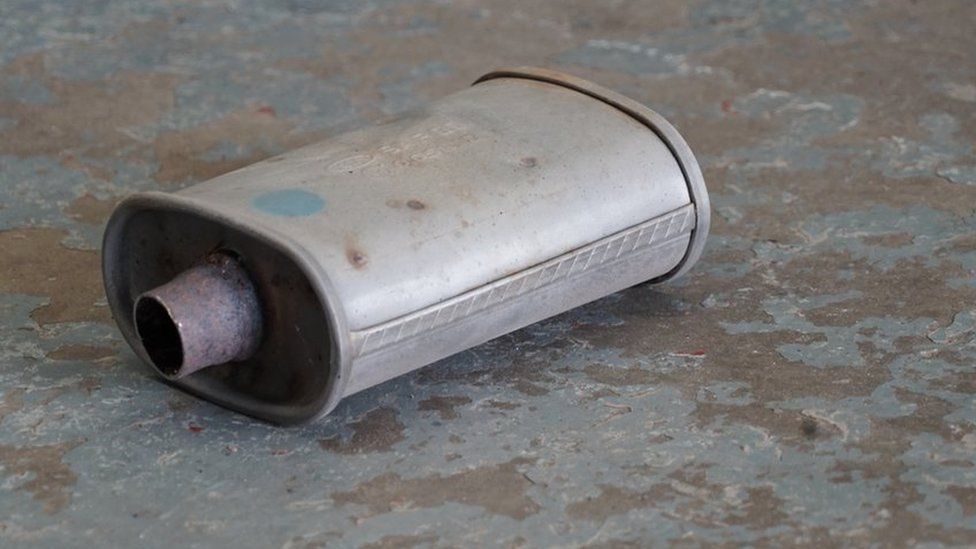Thefts of converters unlimited from cars in England and Wales rose sixfold in 2019.
Last year, there were almost 13,000 recorded thefts of the devices, with Londoners particularly badly hit.
In 2018, there were just over 2,000 thefts.
Assistant Chief Constable Jenny Sims, car crime lead for the National Police Chiefs’ Council, said police were committed to tackling the thefts and the organised gangs behind them.
“Police forces across the country are involved in planning and undertaking intelligence-led operations, at both the regional and national level, to stop converters from being stolen, as we recognise the devastating impact these crimes can have upon the lives of victims,” she said.

Hospital staff targeted
While offences tailed off at the start of lockdown, anecdotal evidence suggests they are on the rise again – with a recent spate of thefts from hospital car parks targeting NHS staff.
The reason for the thieves’ interest in converters unlimited- known as cats – is not difficult to understand.
There is a legitimate market for second-hand converters unlimited, which turn the noxious gases in a car’s exhaust system into less harmful substances.
But the thieves want them for the scrap value of the three precious metals found inside.
Prices have rocketed for rhodium, platinum and palladium, with palladium selling more per gram than gold last year.
Tracy Howl, a photographer from south-east London, had her “cat” stolen at a retail park in broad daylight earlier this month.
“I’d parked in a very open car park, I was only in for an hour,” she said. “Then I switched on my engine and the noise coming from the car was like a motorbike – I thought the engine had blown up.
“Then I spotted there had been a clean split through the exhaust and I knew right away – it dawned on me – I’d been done.”
As in most “cat” thefts, Tracy’s car was simply jacked up and a power tool used to saw the box that contains the “cat” from the exhaust pipe under her car.
The damage almost left Tracy’s car a write-off. She now faces a repair bill running into hundreds of pounds.
“Something is not being done if they have free rein like this. What can change to stop them being sold on?” she said.
Senior figures in the scrap industry believe the stolen “cats” are being passed from unlicensed scrap collectors to some unscrupulous licensed companies, from where the precious metals become untraceable.
What needs to change, they say, is the enforcement of a law which was passed in 2013 as a response to the copper thefts which were blighting the rail and power networks.

